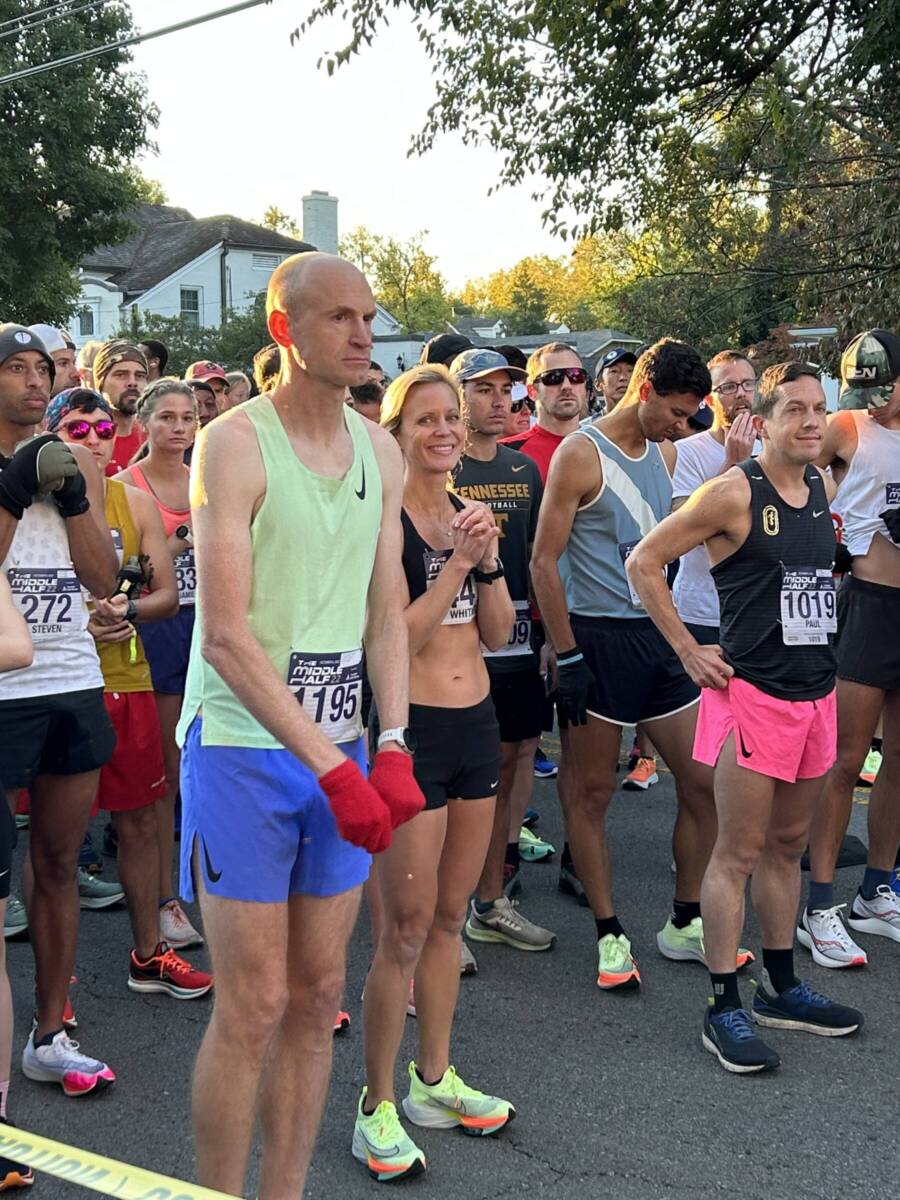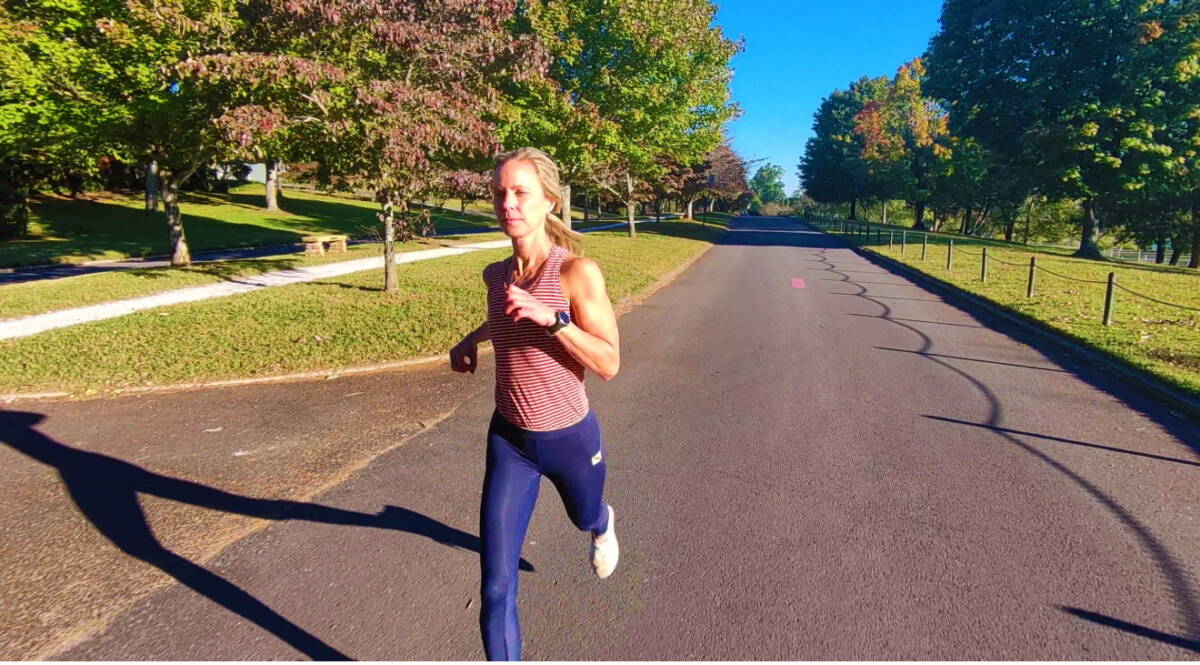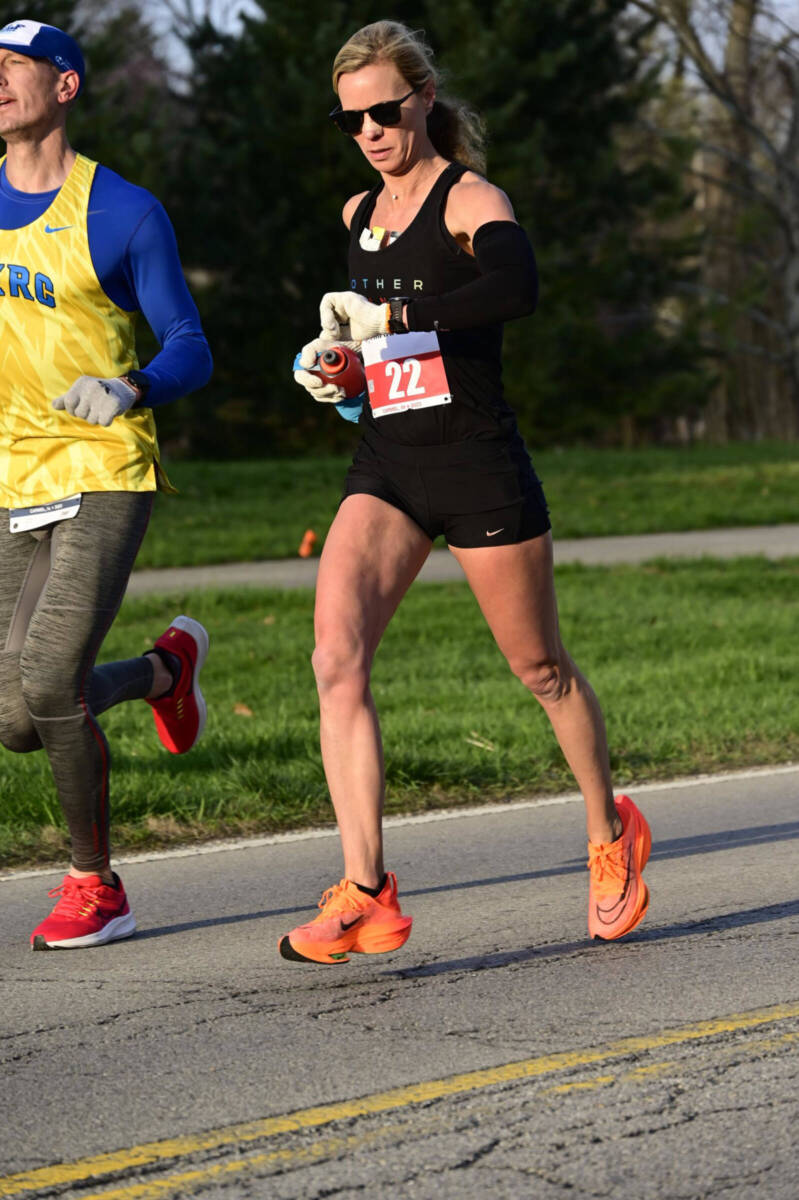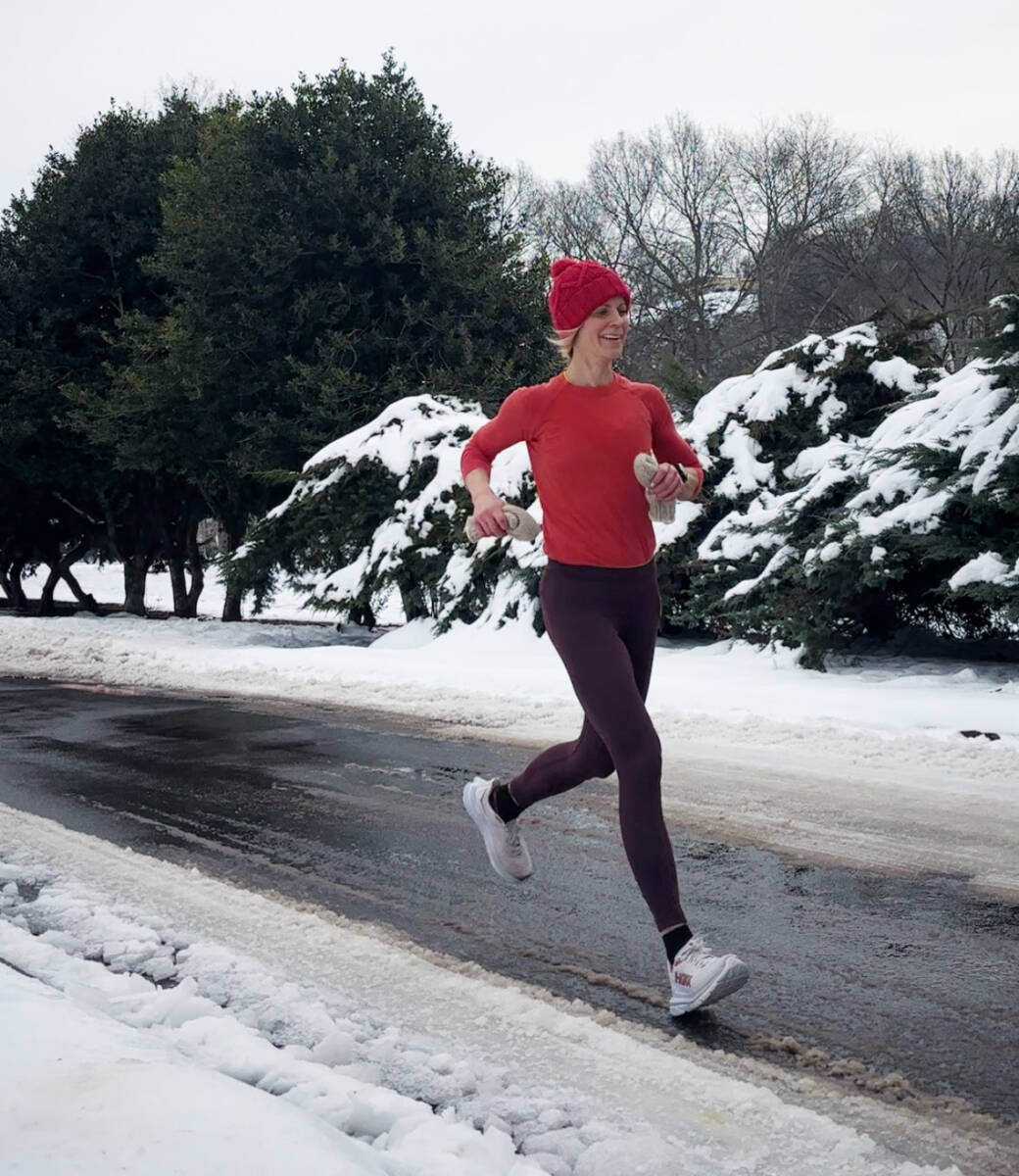5 Key Ways to Overcome Race Anxiety
I haven’t been able to race much in the past five years due to running injuries. Because I am out of practice, I have major race anxiety.

Race anxiety or sports performance anxiety or pre race anxiety is when before an athletic competition you feel overly nervous or worried. Negative thoughts begin to spiral. You may even feel physical pain. Race anxiety can interfere with your athletic performance rather than enhance it by negatively impacting your confidence and decision-making abilities.
Race anxiety is different than pre race jitters in that it affects your performance. Instead of being excited and energized, you feel worried and drained. You may begin to think about how you can avoid the race altogether.
I get it—big time. It comes out of nowhere. For weeks, I am excited. Then all of a sudden that excitement turns to dread and doubt—and I have to talk myself off a ledge to restore my confidence and remind myself that I actually like running races.
Does this sound like you? Are you all about putting down some serious PRs during training but when the big day comes you begin to think that sleeping in and NOT racing is a better option?
Let’s not let race anxiety win and get the best of you. I polled fellow mother runners AND got with a sports psychologist to reveal tips to help you cope with race anxiety (aka athletic performance anxiety) so that you can SHINE on race day.
Table of contents
Here are 5 tips to cope with race anxiety:
Review training.
Before a race (and periodically through my training), I like to scroll through my Strava or my coach’s spreadsheet and admire all the miles and work I’ve put. I look at the workouts that I dreaded or were nervous about and nailed. I also look at the workouts I surprised myself with and the ones that didn’t go well, but I bounced back from.
And I look at my progress.
This process allows me to trust my training. And it gives me buy into the process because it illuminates the evidence that I have worked hard, and I am fit. And it discredits all the doubts that are creeping into my head.
Reviewing your training also serves as a great reminder that you are doing something that you love.
Studies show that believing in yourself can improve your race performance.
Race often.
Practice makes perfect. It also helps you cope with race anxiety because it gives you experience on your side. This is why I’m a big proponent of racing during your training cycle—at least one to three times.
As mentioned, I haven’t raced in three years! It took me time to get fit enough to race. Now that I am, I have two competitive half marathons that I will be running before my goal marathon.
Racing allows me to learn how to deal with race anxiety and work out the kinks that can arise on race day. For example, I may learn that two cups of coffee is too much or I need more time to go the bathroom or that I need to stop looking at my watch because it gives me anxiety.
These are things you can only really figure out by doing.
I’m also a big proponent of running and training with other people. This is because you don’t know how you are going to react when someone is running near you. You may inadvertently speed up or start to doubt your abilities because they are passing you.
Learning your triggers can help you practice self-control so that you focus on you and only you on your race day.
Calm the mind.
When you feel race anxiety, one of the best things you can do is STAY CALM. Do this by calming your nervous system with things that you know will soothe your soul. Some people like to keep their hands busy with crocheting while others like to keep their minds busy by binging on Netflix or reading a book. I personally enjoy massage, stretching, yoga, walks outside, and BREATHING. Studies show that deep breathing can improve mood and decrease stress.
Taking deep breaths where you hold the count for at least 4 seconds on the inhale and exhale can reset your brain and relax your body. This is also a trick to do during the race when you feel out of control of your pace and breath.
This breathwork (which takes practice!) works to calm your sympathetic nervous system (which controls your fight or flight response) and stimulate your parasympathetic nervous system (which controls your rest-and-relax response.) These are the parts of your autonomic nervous system which control involuntary actions like heart rate and digestion.
While both parts of your nervous system are always active, deep breathing taps into your parasympathetic’s vagus nerve which is proven to reduce feelings of stress or anxiety.
Visualize.
One of the oldest and most research-backed ways to prepare for a race and calm pre-race anxiety is to practice race day visualization. I’m talking about (multiple times) going through the process from the morning you wake up, eat, get to the start, run the course, and cross the finish to your family.
Dr. Perlus advises runners to set wise goals and imagine themselves achieving them—no matter the odds. Go through the good and bad feelings, the things that go right and wrong, and picture yourself nailing it!
Come up with how you will respond to challenges.
- How will you redirect a negative thought by focusing on something good?
- Will you practice disassociating thoughts and think about an upcoming vacation to stop the negative spiral?
- Do you have a mantra ready? Does it connect to your why and identity?
Studies show that positive self-talk can enhance athletic performance.
Journal.
In addition to visualizing your race day, you can write about it! You can describe your process, and how you will feel and overcome challenges and succeed. Writing this out can help you work through pain points and help you BELIEVE in your abilities.
Many studies show the power of writing and reflective journaling in reducing anxiety.
Some people like to play the worst-case scenario game. What will you do if your hamstring cramps? Or it’s raining? Or you fall off pace? Having a plan will help you feel more in control of the uncontrollable on race day.
Journaling can also help you reconnect to your why for running. This will be useful when the going gets really tough and you feel tempted to give up.
Then you’ll remember the reasons why you chose to run and how disappointed in yourself you’ll be if you don’t give it your best. This helped me when I ran my last race–a marathon with a torn hamstring. I imagined what I would tell my daughter if I DNFed. That kept me going. I didn’t get my goal time but I did get a PR.
Your Plan to Cope with Race Anxiety (Before, During, & After)
Before the race:
- Start reviewing your training
- Choose your mantra
- Begin visualizing your race day success—no matter the odds
- Nail your race day morning routine (be sure to give yourself ample time to get, warm-up, poop, etc. Lay out your clothes before)
- Get a massage, meditate, practice breathwork, or take gentle walks to ease your mind
- Journal about your training process, upcoming race goals and plan, and the reasons why you run
During the race:
- Stop looking at your watch if it gives you negative feedback
- Instead of focusing on your watch, pick an object in the distance, your breath, or your footfalls.
- Let your mind wander.
- When your mind returns to focusing on discomfort, keep steering it to something else.
- Remind yourself of how hard you trained and how fit you are
- Repeat your mantra
- Focus on the mile you’re in
- Chunk the race into sections—do not look too far ahead
- Focus on ONE thing that looks good
- Admire something around you like a tree to take your mind off the pain
- Think of something unrelated to running—like plan your grocery list
- Talk to others around you or try to pump up the crowd
- Focus on your own race—don’t speed up or slow down due to what others are doing
- Whenever you’re struggling, just return to your breath. Always.
After the race:
- Do a post-mortem journal that includes what went well, what could have gone better, and how you feel.
- Review this throughout your training and before your next race!
Whatever happens, remember the race is the reward. Even if a race goes terribly wrong, you walk away with experiences that will help you next time. And guess what, your family and friends will still love you.
Why do I get anxious before a race?
Runners get anxiety before a race because they care! Pre-race jitters are normal, says sports psychologist Dr. Haley Perlus. The key is to not let them tense you up so much that you underperform. To do this, you must understand the root cause of your anxiety, she says.
For example, it could be the fear of failure, negative self-talk, poor training sessions, and overall worry about the outcome. Therefore, in order to keep the anxiety at bay, you can:
- Try your best to warm up and get your heart rate up and ready.
- Give yourself a pep talk. Remind yourself why you’re there and how fun it can be.
- Let your mind wander. Instead of getting in your head before the race, it can help to distract yourself and let your mind think of something else to ease the nerves.
- Focus on what you can control—factors like the weather, are out of your hands. But sleep, nutrition, and attitude are all things you can take control of.
Getting a running coach can help you feel confident in your training and talk you through your pre-race anxiety. What helps you feel confident running a race?






